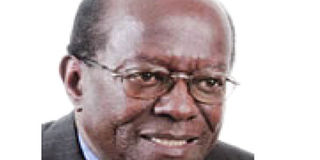Mao should not use religion, tribe to explain challenges in DP

A British friend once told me that Africa should start looking for positives in its past instead of dwelling on the negatives otherwise it would never catch up with developed nations.
He argued that the west used past positive achievements of its nations as props for further development unlike in Africa where every problem is blamed on colonialism, tribalism, sectarianism and religious bigotry.
It is against this background that I read Mr Norbert Mao’s article (“Storm in DP’s camp is a symptom of our national foundation”) which appeared in the press recently.
Mr Mao tried to attribute the causes of DP’s unrest to the Berlin Conference of 1884, Buganda’s lost primacy and religious cynicism.
We wish to correct the mistakes in Mr Mao’s arguments.
The Berlin conference did not create the state of Uganda. The conference only drew up the geographical boundaries for British influence.
The state of Uganda was established under the British Uganda Order in Council of August 11, 1902 which gave the governor the following powers:
“The governor may by proclamation divide those territories into provinces and sub-divisions as may be convenient for the purposes of administration describing the boundaries thereof and assigning names thereto.”
Pursuant to the above provision, the governor sub-divided the territories into four provinces and 13 districts.
Uganda’s post-independence problems started with this provision since the governor bundled together in one entity, communities which for historical reasons did not have love for each other.
Sebei county was the first one to fight to be separated from Bugisu district and this was followed by the Rwenzururu uprising in which the Bakonjo wanted to be given a separate district from Toro. The Bahororo fought to be separated from the Bakiga. The foundation of the new nation could not hold.
Additionally, although Governor John Hall saw the development of the country through the evolution of autonomous local governments, in 1952 Governor Andrew Cohen who replaced Hall changed this policy and directed his focus towards the development of the country through the evolution within the legislative council (parliament).
This left unresolved Buganda’s relationship as a province with the rest of the country represented by the districts.
To compound the problem, at their annual general meeting in July 1958, the secretaries general of districts passed a resolution in which they demanded that the district should be the unit of local government.
This meant that Buganda would have to lose its status as a province and be curved out into districts contrary to Clause 4 of its 1900 agreement, which guaranteed it the provincial status at par with the other provinces.
It should be pointed out that the Local Government Ordinance of 1942 gave the governor the power to set up provincial councils, which would have allowed the other three provinces to be at par with Buganda but none of the districts wanted to work together at provincial level.
One wonders what would have happened if districts embraced provincial councils. Perhaps, our history would have been different.
Mao’s attempt to use religion and tribalism to explain the problem in his party is unfortunate.
In 1955, 14 members of Uganda National Congress rebelled against their president general Ignatius K. Musaazi and left to form the United Congress Party. All of them except one were Baganda and Anglican as was Musaazi.
The rivalry within UPC between Kakonge and Ibingira, all westerners and Anglicans, led to 1966 crisis.
In 1962, the Baganda ditched one of their own Ben Kiwanuka and supported Apollo Milton Obote. This proves that history is not on Mao’s side.
The message implies that we should be positive about our history, if we are to avoid being stagnant.
Mr Mulira is a lawyer




